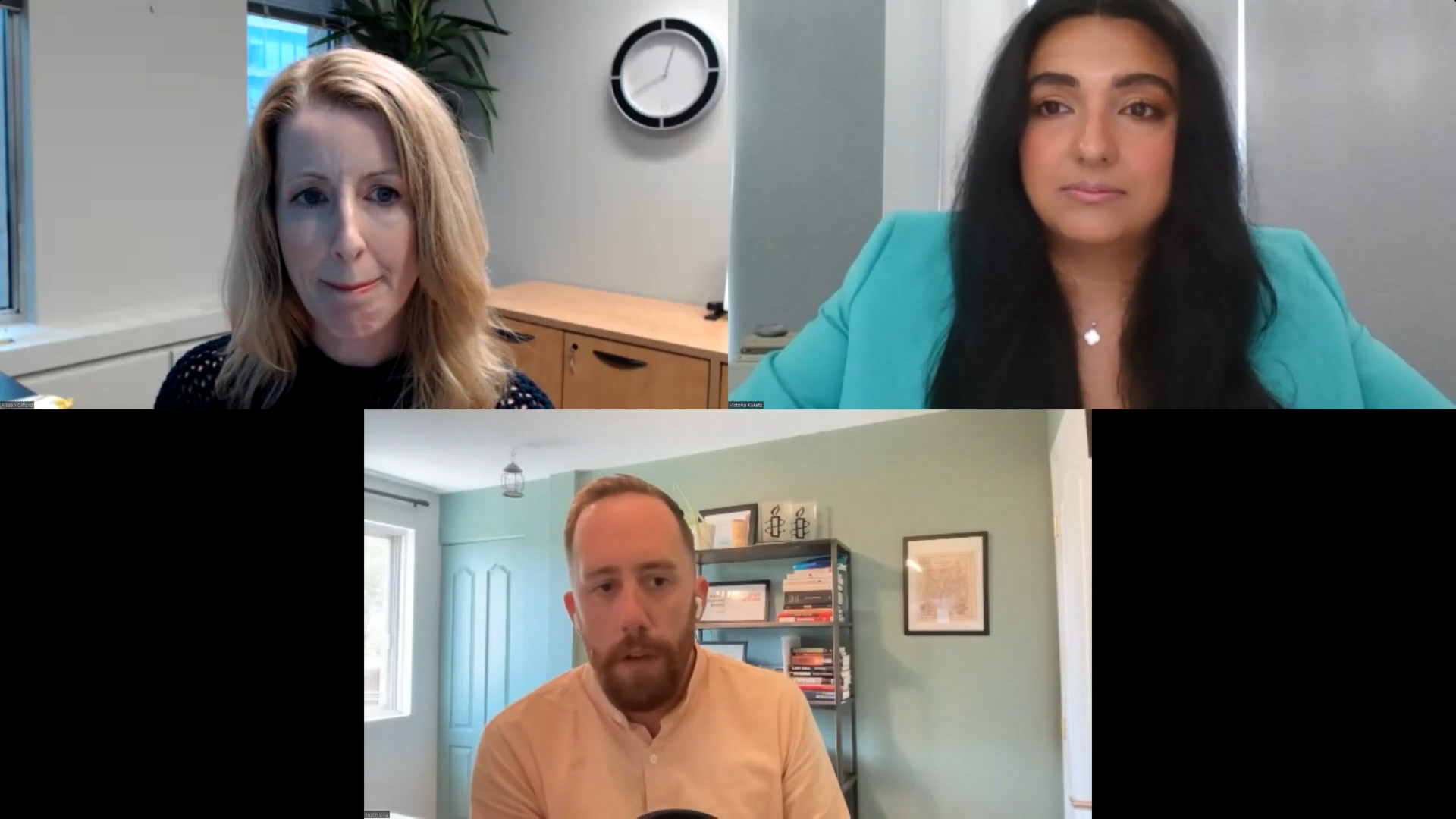
How Canada’s youth are rebelling against polarization
PPF’s latest report Far and Widening uncovered a troubling trend: young Canadians are less trusting of democracy than older generations.
At a recent PPF members’ event, Victoria Kuketz, PPF Fellow in Digital Democracy, and report author Justin Ling delved into how deepening divides are affecting young Canadians and what can be done about it.
Their report was based in part on extensive outreach to young Canadians aged 18 to 35 — 116 young people through community roundtables and 1,500 through a national survey, representing people from 320 cities across the country.
Listening to these roundtables, “what we heard was largely a frustration with polarization,” said Ling. There was “an exhaustion with it — this feeling that there is a tremendous amount to do and one of the biggest barriers is the state of polarization.”
The report found that more than 45 percent of young adults believe political division will get worse over the next five years. Fears about this growing polarization outranked even concerns around climate change and the economy.
One of the surprising concerns that stood out, noted Ling and Kuketz, was around the pressures of cancel culture. Youth generally agree with socially progressive movements, but not the pressure to denounce and constantly participate in the discourse.
“They’re terrified that people are seeking to react rather than to listen and correspond,” said Kuketz.
There is no lack of desire among young people to address problems, from the housing crisis to the slow pace of reconciliation to climate chance. While these challenges could just as easily be driving young people toward polarization, the report found a cautious optimism among young adults.
But there is a recognition that the systems in place now are not doing a good job, said Ling. Young people don’t know what the solutions are. “They were always told ‘go vote, maybe join a political party, involve yourself in the democratic process.’ But more and more a lot of that feels either ineffective or it feels like you’re contributing to the worsening of the system.”
Winning a nomination and a seat, for instance, requires the backing of a political party, encouraging partisanship and more rigid lines in politics.
Politicians increasingly need to perform and raise money from supporters on social media, noted Ling. “The pandemic supercharged everything” as frustrations and anger rose. “The angrier you make your supporters, the angrier they expect you to be in return.”
One question that arose was around lowering the voting age to help cool polarization. That would be “a no brainer,” said Ling. Added Kuketz: “We have incredible social organizations build up social muscles and then [youth] can’t actually cast real votes until they’re out of the community of high school.”
Both noted the need and challenge ahead in pushing real democratic reform to break the cycle of polarization.
“The questions is, who’s going to be brave enough to do something differently?” said Kuketz. “As long as this is the mechanism for how people get elected and stay in office and keep their jobs, I don’t think anything’s changing.”
“But if we all are brave enough to try and find a different way — that means the electorate and also the politicians trying to do something different — then maybe we have a way forward.”
Join our network of policy leaders across Canada. Become a member.


